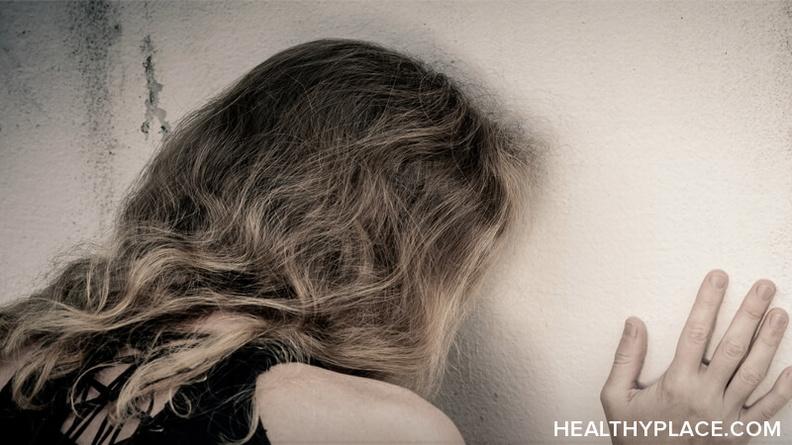Addictive Relationships and How to Overcome Them

You're in a bad relationship, but for some reason, you don't get out. Learn how to recognize and deal with addictive relationships.
It is often very hard to end a love relationship even when you know it is bad for you. A "bad" relationship is not the kind that is going through the usual periods of disagreement and disenchantment that are inevitable when two separate people come together. A bad relationship is one that involves continual frustration; the relationship seems to have potential but that potential is always just out of reach. In fact, the attachment in such relationships is to someone who is "unattainable" in the sense that he or she is committed to someone else, doesn't want a committed relationship, or is incapable of one.
Bad relationships are chronically lacking in what one or both partners need. Such relationships can destroy self-esteem and prevent those involved from moving on in their careers or personal lives. They are often fertile breeding grounds for loneliness, rage, and despair. In bad relationships, the two partners are often on such different wave-lengths that there is little common ground, little significant communication, and little enjoyment of each other.
Remaining in a bad relationship not only causes continual stress but may even be physically harmful. An obvious harm is the physical abuse that is often a part of such relationships. In a less obvious way, however, the tensions and chemical changes caused by the constant stress can drain energy and lower resistance to physical illness. Continuing in such bad relationships can lead to unhealthy escapes such as alcohol or drug abuse and can even lead to suicide attempts.
In such relationships, individuals are robbed of several essential freedoms
- the freedom to be their best selves in the relationship
- the freedom to love the other person through choice rather than through dependency
- the freedom to leave a situation that is destructive
Despite the pain of these relationships, many rational and practical people find that they are unable to leave, even though they know the relationship is bad for them. One part of them wants out but a seemingly stronger part refuses or feels helpless to take any action. It is in this sense that the relationships are "addictive."
Are You Addicted to a Person or Relationship?
Listed below are several signs of an addictive relationship. Consider whether they apply to you
- Even though you know the relationship is bad for you (and perhaps others have told you this), you take no effective steps to end it.
- You give yourself reasons for staying in the relationship that are not really accurate or that are not strong enough to counteract the harmful aspects of the relationship.
- When you think about ending the relationship, you feel terrible anxiety and fear which make you cling to it even more.
- When you take steps to end the relationship, you suffer painful withdrawal symptoms, including physical discomfort, that is only relieved by reestablishing contact.
If some of these signs apply to you, you may be in an addictive relationship and have lost the capacity to direct your own life. To move toward recovery, your first steps must be to recognize that you are "hooked" and then try to understand the basis of your addiction. In this way, you gain the perspective to determine whether, in reality, the relationship can be improved or whether you need to leave it.
The Basis of the Relationship Addiction
There are several factors that can influence your decision to remain in a bad relationship. At the most superficial level are practical considerations such as financial entanglement, shared living quarters, the potential impact on children, feared disapproval from others, and possible disruption in academic performance or career plans.
At a deeper level are the beliefs you hold about relationships in general, about this specific relationship, and about yourself. These beliefs may take the form of learned societal messages such as "Love is forever," "You are a failure if you end a relationship," "Being alone is terrible," and "You should never hurt anyone." Also relevant are beliefs about yourself such as "I'll never find anyone else," "I'm not attractive or interesting enough," or "If I work hard enough I should be able to save this relationship."
At the deepest level are unconscious feelings which can keep you stuck. These feelings develop early in childhood, often operate without your awareness, and can exert considerable influence on your life. Children need to be loved, nurtured, and encouraged in their independence. To the extent that parents are successful in doing this, their children will be able to feel secure as adults in moving in and out of relationships. To the extent that these needs are not met their children may be left feeling "needy" as adults and may thus be more vulnerable to dependent relationships.
Strategies for Overcoming Relationship Addictions
In her book "Women Who Love Too Much," author Robin Norwood outlines a ten-step plan for overcoming relationship addiction. While this book is directed toward women, its principles are equally valid for men. Stated here (reordered and sometimes paraphrased), Norwood suggests the following:
- Make your "recovery" the first priority in your life.
- Become "selfish," i.e., focus on getting your own needs met more effectively.
- Courageously face your own problems and shortcomings.
- Cultivate whatever needs to be developed in yourself, i.e., fill in gaps that have made you feel undeserving or bad about yourself.
- Learn to stop managing and controlling others; by being more focused on your own needs, you will no longer need to seek security by trying to make others change.
- Develop your "spiritual" side, i.e., find out what brings you peace and serenity and commit some time, at least half an hour daily, to that endeavor.
- Learn not to get "hooked" into the games of relationships; avoid dangerous roles you tend to fall into, e.g., "rescuer" (helper), "persecutor" (blamer), "victim" (helpless one).
- Find a support group of friends who understand.
- Share with others what you have experienced and learned.
- Consider getting professional help.
When to Seek Professional Help for Relationship Addiction
Some counseling may be called for when any of these four circumstances exist:
- When you are very unhappy in a relationship but are unsure of whether you should accept it as it is, make further efforts to improve it, or get out of it.
- When you have concluded that you should end a relationship, have tried to make yourself end it, but remain stuck.
- When you suspect that you are staying in a relationship for the wrong reasons, such as feelings of guilt or fear of being alone, and you have been unable to overcome the paralyzing effects of such feelings.
- When you recognize that you have a pattern of staying in bad relationships and that you have not been able to change that pattern by yourself.
APA Reference
Staff, H.
(2021, December 29). Addictive Relationships and How to Overcome Them, HealthyPlace. Retrieved
on 2026, January 15 from https://www.healthyplace.com/relationships/unhealthy-relationships/addictive-relationships-and-how-to-overcome-them



